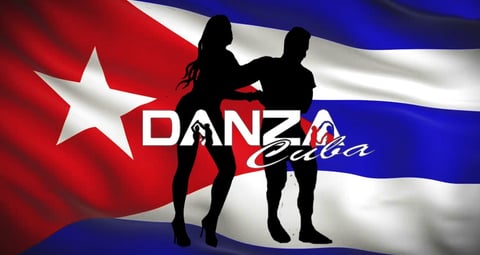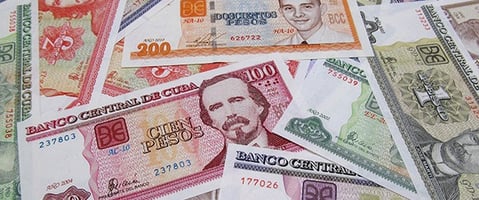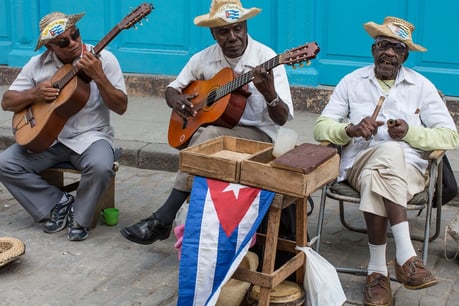1. Entry Requirements
Visa: Most travelers to Cuba will need a tourist visa (also known as a "tourist card"). You can usually obtain one through your airline or a Cuban consulate.
Travel Restrictions (US Citizens): If you're from the U.S., travel to Cuba is restricted by law. You must qualify under one of the 12 categories of authorized travel, such as "support for the Cuban people," cultural or educational exchanges, or professional research.
Health Insurance: Travelers to Cuba are required to have health insurance that is valid in Cuba. Some airlines include this as part of the ticket price, but confirm beforehand.
COVID-19 Requirements: Check current entry requirements for COVID-19, as they may include vaccination or testing requirements.
2. Currency
Cuban Currency: The local currency is the Cuban Peso (CUP). U.S. dollars are widely accepted in tourist areas, but exchanging dollars for CUP may come with higher fees.
Credit Cards: U.S.-issued credit and debit cards do not work in Cuba, so plan to bring enough cash for the entire trip. You can exchange money at airports, hotels, or banks.
Exchange Rates: Be sure to check the exchange rates before traveling. Euros, British Pounds, and Canadian Dollars tend to get more favorable rates compared to U.S. Dollars.
3. Accommodations
Hotels: Hotels are available in major cities like Havana and resort areas like Varadero, but availability can be limited, especially during peak travel seasons.
Casa Particulares: Staying in a "casa particular" (a privately-owned home offering rooms or entire apartments) is a great way to experience authentic Cuban life. These are often more affordable and can offer a more personal experience than hotels.
4. Internet Access
Internet is limited and slower than in many countries. Access is often available in hotels and specific Wi-Fi hotspots. You’ll need to buy an internet access card (ETECSA) to use the Wi-Fi.
Consider downloading offline maps and any other information you might need before traveling.
5. Transportation
Public Transport: Buses are available but can be unreliable. Taxis are a popular option and can be hired for both short trips and longer, cross-country journeys.
Vintage Taxis: For a uniquely Cuban experience, you can also hire a classic vintage car. Make sure to negotiate the price beforehand.
Rental Cars: Renting a car is an option, but cars are often limited and the roads may be difficult to navigate for non-locals.
6. Language
Spanish is the official language in Cuba. While some locals in tourist areas speak English, it's helpful to learn basic Spanish phrases or use a translation app to communicate.
7. Cultural Etiquette
Tipping: Tipping is common in Cuba, especially in restaurants and for service staff. A 10% tip is typical.
Dress Code: While casual dress is acceptable, be respectful when visiting churches or attending religious ceremonies, particularly in places like Matanzas with a strong Afro-Cuban culture.
8. Safety
Cuba is generally considered safe for tourists, with low violent crime rates. However, petty theft can occur, so be mindful of your belongings, especially in crowded areas.
Health services for tourists are available, but for minor issues, it’s recommended to bring your own basic medications, as they may be in short supply.
9. Things to Do
Havana: Explore the colonial architecture, take a walking tour of Old Havana, and visit historic sites such as the Plaza de la Revolución.
Matanzas: Known for its Afro-Cuban culture, visit for traditional ceremonies, dance workshops, and historical sites.
Varadero: Famous for its beautiful beaches and resorts.
Cienfuegos and Trinidad: These smaller cities offer rich colonial history and scenic beauty.
10. Power and Plugs
Cuba uses 110V and 220V, with a mix of American and European-style plugs. Bring a universal adapter if you have different plug types.


When traveling to Cuba, there are several important details and recommendations to keep in mind to ensure a smooth and enjoyable trip. Here's a breakdown:
Visa & Travel Documentation Resources
Visa Providers: Some reputable sources where you can obtain a Cuban Tourist Visa:
Airlines (such as American Airlines, JetBlue, etc.) often sell visas at check-in.
Cuban embassies or consulates.


Sending & Managing Money in Cuba
Sending Money to Cuba: U.S. sanctions make sending money difficult, but some workarounds include:
Western Union (service often changes—check status before traveling).
Cryptocurrency: Some travelers use Bitcoin or other cryptocurrencies to get funds into Cuba.
Using a trusted contact to receive funds in another country and deliver in Cuba.
Cash Management Tips:
Bring enough cash in small denominations (USD, Euros, CAD).
Exchange at airports, official Cadeca exchange offices, or trusted Casas Particulares (as well as DanzaCuba tour guides).
Keep cash in different places to avoid theft or loss


Unforeseen Issues & How to Handle Them
Lost Passport: Travelers should register with their embassy upon arrival. If a passport is lost:
Contact the U.S. Embassy in Havana or the respective country's consulate.
Have copies of important documents (passport, visa, travel insurance).
Emergency Medical Care:
Tourists are required to have Cuban-approved travel insurance.
Recommended hospitals for tourists: Cira García Clinic (Havana), Clínica Internacional (Varadero).
Power & Internet Blackouts:
Bring power banks & offline maps.
Store important travel details in a physical notebook in case Wi-Fi isn’t available.
Language Barriers:
Download Spanish translation apps (Google Translate or SayHi).
Have key phrases written down in Spanish (e.g., directions, food allergies, emergency contacts).


Transportation & Navigation Tips
Airport Transfers: Arrange a private taxi or pre-book a trusted driver to avoid price hikes. NOTE* included in your tour package DanzaCuba provides transportation to and from the airport
Classic Car Taxis vs. Official Taxis:
Classic cars are more expensive but offer a unique experience.
Official taxis (like Cubataxi) are metered but can be overpriced for tourists.
Shared taxis ("Almendrones") are the cheapest option for city travel.
Getting Around Without the Internet: Download Maps.me or Google Maps offline for navigation.


Cultural Etiquette & Social Expectations
Tipping Culture: Many Cuban workers rely on tips due to low wages. A 10-15% tip is standard at restaurants and for tour guides.
Gift Giving: It’s common for travelers to bring small gifts for locals (toiletries, school supplies, over-the-counter medicine).
Respect for Afro-Cuban Traditions:
When attending religious ceremonies, ask before taking photos.
Dress modestly in religious settings.
Show respect when learning about Santería and other spiritual practices.
With Danza Cuba, your trip will likely focus on authentic dance and cultural experiences, so be prepared to immerse yourself in local traditions and the Afro-Cuban community!
Emergency & Important Phone Numbers:
U.S. Embassy in Havana: (+53 7) 839-4100
Emergency Medical Services: 104
Tourist Police (Politur): 106
Best Apps to Download Before Arriving in Cuba
Since the internet is unreliable, having the right apps before arrival is crucial:
✅ Maps.me (Offline Maps)
✅ Google Translate (Download Spanish for offline use)
✅ A La Mesa (Cuba’s version of Yelp for restaurants)
✅ Sube (For taxi fares & ride-sharing in Havana)
✅ VPN Apps (Some websites are blocked; having a VPN can be useful)


